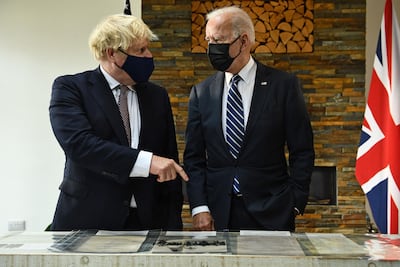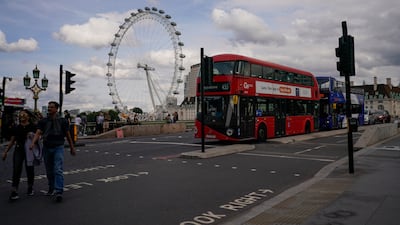Joseph Chamberlain was Britain’s Colonial Secretary at the time of the Boer War in the early 1900s. When the rag tag Boers humiliated British troops in South Africa, and Britain was alarmed by the rise of Germany, Chamberlain lamented: “We have had no allies. I am afraid we have had no friends... We stand alone.” Britain quickly reversed course, changed centuries of hostility towards France, built a new friendship, the entente cordiale, and fought in two wars alongside France to control the threat from Germany’s Kaiser and Hitler.
Now, more than a century later, British Prime Minister Boris Johnson is trying to find a role for Brexit Britain as “Global Britain” building new relationships with Australia and the United States – but managing to annoy potential adversaries and also close allies at the same time. The Aukus alliance, as its called, will see the US and UK build nuclear-powered submarines for Australia. But China regards this as a threat and a “Cold War mentality”. Former UK prime minister Theresa May asked Mr Johnson if the UK was being drawn inexorably into any possible military conflict with China over Taiwan.
historian
France claims it was “stabbed in the back” because Australia is cancelling a £48 billion ($90bn). French contract to modernise its submarine fleet. Paris recalled ambassadors from Canberra and Washington, but French officials sniffed that their London ambassador could stay in post because the UK is merely a junior partner in all this.
The eight proposed submarines will be quieter, better armed and more resilient than current Australian vessels, but the real story is much bigger. US President Joe Biden, like his predecessors Barack Obama and Donald Trump, has signalled a strategic tilt in American priorities from Europe and Russia to the Indo-Pacific and China. Britain has sent a new aircraft carrier to the region. India is involved at various levels of strategic dialogue.

All this potentially goes way beyond anything discussed publicly and begins to sound like a revival of an idea once mooted at the end of the Second World War by Winston Churchill and taken up with enthusiasm by some conservative politicians and thinkers, including the historian Andrew Roberts. Here is Mr Roberts’ description: “The Anglosphere is the name given to all those countries in the world where the majority of people speak English as their first language, almost all of which have similar outlooks and shared values. The four “Canzuk” countries of Canada, Australia, New Zealand and the UK are a prominent historical subset of this larger group, and there is a mounting case that some form of federation among them – with free trade, free movement of people, a mutual defence organisation and combined military capabilities – would create a new global superpower and ally of the US, the great anchor of the Anglosphere.”
Mr Roberts does not specify any concrete evidence for his presumed “mounting case” for an “Anglosphere” creating “a new global superpower” beyond his personal sentiment. But French diplomats are correct to suggest that Mr Johnson is indeed desperate to find some role for Brexit Britain. Mr Johnson has irritated governments across Europe and elsewhere, including in Ireland and the Biden administration. Perhaps Joseph Chamberlain’s lament – we have no friends – is beginning to sound like a description of his own foreign policy difficulties. He did rapidly agree on a trade deal with Australia – although critics say it risks diluting British food standards. And Mr Johnson is also desperate to meet Mr Biden at the White House this week to envelope the US president in some of his famous Old Etonian charm.
But the submarines row points to the fragility of other relations between Britain and our former European Union partners, especially France, which remains the only other nuclear power in Nato in Europe. The French have a significant presence in the Pacific and are incensed that three English speaking allies cooked up the submarines deal without informing them. Other "Anglosphere" relationships also exclude France. The “Five Eyes” intelligence gathering programme brings together the US, UK, Canada, Australia and New Zealand, although presumably a serious re-evaluation of American, British and Australian priorities in the Indo-Pacific will eventually need to include France, India, Japan and others in some kind of arrangement.
But any future British relationship with the US – as British diplomats well know – has been weakened because Brexit means the UK has much lesser influence in Europe. The French are also correct that the UK is indeed a junior partner in Aukus. Militarily, Great Britain is less than great. Boris Johnson is cutting the British army to 72,500 soldiers by 2025, its lowest level for 300 years. By 2026 the Royal Navy will be down from 13 to 10 frigates. In 2018, the British Council organised a survey of US opinion of Britain which found the UK’s best selling points among Americans were our "cultural and historic attractions". The idea that the UK is regarded by most Americans as a kind of historic theme park helps tourism, but it is hardly a world role for “Global Britain”. But beyond the slogan, what is?


